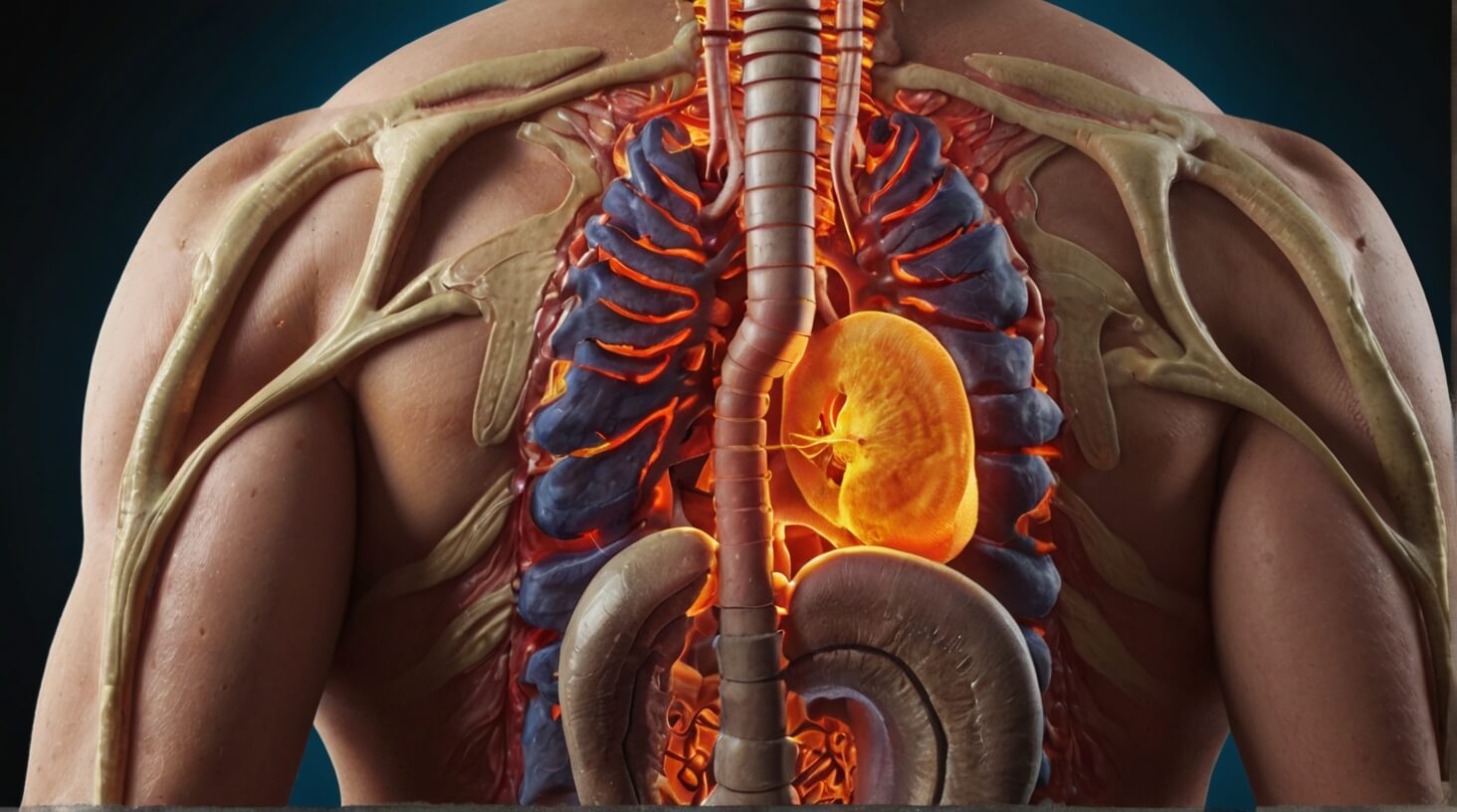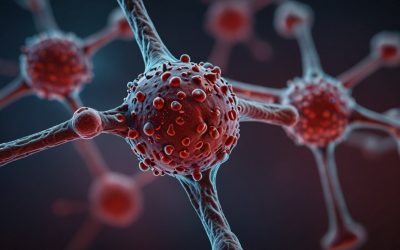While you’re familiar with the discomfort of occasional heartburn or indigestion, you might not be aware that these can be signs of a deeper issue connected to inflammation. In fact, chronic inflammation is often the silent accomplice in various digestive disorders, quietly exacerbating conditions ranging from gastroesophageal reflux disease (GERD) to more severe autoimmune maladies like Crohn’s disease. As you navigate your day-to-day life, your gut’s inflammatory response could be subtly influenced by your diet, stress levels, and even the bacteria residing in your intestines. Understanding this connection is critical, as it can unlock new perspectives on managing and potentially alleviating the symptoms that disrupt your comfort and well-being. Join us on a journey to uncover the complexities of your body’s internal reactions and how they shape your digestive health—knowing what triggers inflammation and the interventions that can help may just be the key to a happier gut.
Key Takeaways
- Inflammation plays a critical role in the development of digestive disorders such as Crohn’s disease and ulcerative colitis.
- Genetic susceptibility and environmental factors contribute to the dysregulation of the immune system in these conditions.
- Abdominal pain, altered bowel habits, fatigue, and unexplained weight loss are common symptoms of digestive inflammation.
- Lifestyle choices, environmental factors, and diet can trigger and worsen digestive inflammation, while stress management and regular exercise can help manage it.
Understanding Inflammation

Inflammation, a complex biological response to harmful stimuli, plays a critical role in the pathogenesis of digestive disorders such as Crohn’s disease and ulcerative colitis. As a healthcare professional, you’re well aware that these conditions are manifestations of inflammatory bowel disease (IBD), a term encompassing chronic disorders that involve inflammation of the gastrointestinal tract.
IBD is characterized by an abnormal immune response that leads to intestinal inflammation. While the precise etiology remains elusive, it is clear that both genetic susceptibility and environmental factors, such as diet, stress, smoking, and certain medications, contribute to the dysregulation of the immune system. This dysregulation prompts a persistent inflammatory state, damaging the mucosal lining of the digestive tract and causing the hallmark symptoms of IBD: diarrhea, fatigue, abdominal pain, and rectal bleeding.
Crohn’s disease can affect any part of the digestive tract, from the mouth to the anus, and often impacts the deeper layers of the bowel wall. Ulcerative colitis, on the other hand, typically affects the colon and rectum, primarily involving the superficial layers. The severity of IBD can vary widely; some individuals experience only mild symptoms, while others suffer from a debilitating condition with risks of life-threatening complications.
As a clinician serving patients with these conditions, it’s crucial to understand the underlying inflammatory processes to effectively manage and alleviate symptoms. Therapeutic strategies are aimed at attenuating the immune response and reducing intestinal inflammation to improve quality of life for those afflicted with these chronic digestive disorders.
Signs of Digestive Inflammation
Recognizing the clinical manifestations of digestive inflammation is essential for timely intervention and management of conditions such as IBD. Inflammatory bowel diseases (IBD), including Crohn’s disease and ulcerative colitis, are characterized by chronic inflammation of the gastrointestinal tract, which can lead to a myriad of symptoms that impact patient quality of life.
When you’re assessing a patient with suspected digestive inflammation, consider these cardinal signs:
- Abdominal Pain: Persistent or recurrent abdominal pain is a hallmark of IBD, frequently reported by individuals with Crohn’s disease or ulcerative colitis. This discomfort is often a result of the immune system’s hyperactive response leading to tissue damage within the digestive tract.
- Altered Bowel Habits: Diarrhea or constipation, sometimes with blood in the stool, indicates mucosal irritation and is a common symptom of digestive inflammation. These symptoms reflect the direct impact of chronic inflammation on the function of the digestive system.
- Systemic Symptoms: Fatigue and unexplained weight loss are systemic manifestations of the increased energy expenditure and nutrient malabsorption associated with chronic gastrointestinal inflammation.
- Extraintestinal Symptoms: Nausea, vomiting, and changes in appetite can also be associated with IBD, representing the broader systemic effects of chronic inflammation on the body’s physiology.
As a healthcare professional, recognizing these signs prompts an urgent need for a thorough evaluation to prevent complications and improve patient outcomes. Patients with these symptoms are at an increased risk for complications and require a multidisciplinary approach for optimal management. Understanding and identifying these clinical presentations support your mission to serve and provide relief to those suffering from ulcerative colitis or Crohn’s disease.
Common Inflammatory Digestive Conditions

Chronic inflammatory digestive conditions, such as IBD, manifest with a spectrum of symptoms ranging from mild discomfort to severe, life-altering complications. Inflammatory bowel disease encompasses chronic inflammation of the digestive tract, specifically Crohn’s disease and ulcerative colitis. These conditions disrupt the integrity of the epithelial barrier, leading to gastrointestinal inflammation and necessitating interventions aimed at mucosal healing.
Crohn’s disease and ulcerative colitis are differentiated by the location and nature of the inflammation within the digestive tract. Crohn’s can affect any part of the gastrointestinal tract from the mouth to the anus and often penetrates deep into the affected tissues. Ulcerative colitis, on the other hand, is limited to the colon and rectum, with inflammation only in the innermost lining of the colon.
The immune system plays a central role in IBD, with dysregulation leading to inappropriate immune responses against the body’s own intestinal tissues. While the exact cause is multifactorial, involving genetic and environmental components, management often includes anti-inflammatory medications to reduce the chronic inflammation and maintain remission.
| Crohn’s Disease | Ulcerative Colitis |
|---|---|
| Can affect entire GI tract | Limited to the colon and rectum |
| Deep tissue involvement | Affects only the innermost lining |
| Symptoms may be more widespread | Typically, symptoms are localized |
As a healthcare provider, you’re dedicated to serving others, and understanding these conditions is crucial for effective treatment. Treatments at institutions like Mayo Clinic often involve personalized plans that include diet modification, medication, and in severe cases, surgery, coupled with ongoing monitoring. Your role in facilitating patient care and advocacy is pivotal in the journey towards achieving and maintaining remission in these chronic inflammatory conditions.
Triggers and Risk Factors
While certain lifestyle choices and environmental factors significantly contribute to the onset and exacerbation of inflammatory bowel diseases (IBD), genetic predisposition also plays a critical role in individual susceptibility. As you seek to understand and support those affected by IBD, including Crohn’s disease and ulcerative colitis, it’s important to acknowledge the complex interplay of triggers and risk factors that can initiate and perpetuate the inflammatory process within the digestive system.
Consider the following key risk factors:
- Genetic Factors: Although most individuals with IBD do not have a family history of the condition, those who do are at an increased risk of developing IBD. Specific gene mutations have been identified, underscoring the importance of genetic screening in at-risk populations.
- Immune System Dysfunction: The immune system’s malfunctioning, possibly attacking the cells of the digestive tract, is a fundamental aspect of IBD pathogenesis. This aberrant immune response can lead to chronic inflammation.
- Environmental Exposures: Certain medications and smoking are environmental triggers that may heighten the risk or exacerbate the progression of IBD. It’s imperative to evaluate patients’ exposure to these factors.
- Microbiome Disruption: Alterations in the gut microbiome can compromise the barrier function of the intestinal lining, facilitating the infiltration of pathogens and further provoking the immune system.
As a healthcare provider or advocate, understanding these risk factors is crucial. You must appreciate that while the onset of IBD can occur at any age, it is most commonly diagnosed before age 30, and although it is more prevalent in white populations, it can affect any race or ethnicity. Your role in serving those with IBD involves not just treatment but also education and prevention strategies that take these triggers and risk factors into account.
Complications From Chronic Inflammation

Understanding the triggers and risk factors of inflammatory bowel diseases (IBD) sets the stage for comprehending the serious complications that chronic inflammation can precipitate, including systemic effects that extend beyond the digestive system. IBD, encompassing Crohn’s disease and ulcerative colitis, manifests as chronic inflammation within the digestive tract, yet its repercussions can cascade throughout the body.
Elevated levels of C-reactive protein, a marker of inflammation, often correlate with the severity of IBD. This chronic inflammation can contribute to weight loss and fatigue, diminishing your capacity to maintain a productive life. It is imperative to acknowledge that chronic inflammation may also contribute to a reduced life expectancy, particularly in the context of a creeping clinical course that leads to generalized debilitating disease.
Beyond the digestive tract, chronic inflammation can adversely affect nervous tissue, joints, and skin, potentially triggering autoimmune disorders. The immune system, constantly engaged in an inflammatory response, may erroneously attack the body’s own cells, leading to a spectrum of autoimmune conditions. In this light, managing stress and advocating for lifestyle adjustments become critical in mitigating the risk of developing such disorders.
In IBD patients, chronic inflammation heightens the risk of colon cancer, specifically colorectal cancer. This risk underscores the necessity for regular surveillance and, in some cases, prophylactic surgery for Crohn’s disease to prevent malignant transformation. Such intervention may entail resection of affected bowel segments, aiming to stave off the progression to colorectal cancer.
Diagnostic Approaches
To accurately diagnose inflammatory bowel diseases (IBD), clinicians employ a comprehensive approach that includes a thorough medical history review, physical examination, and a series of diagnostic tests such as blood panels, imaging procedures, and biopsies. Recognizing IBD symptoms is crucial; they often mirror other conditions such as Gastrointestinal and Liver Disease or inflammatory bowel syndrome (IBS), making the differentiation challenging.
As you seek to serve patients with digestive disorders, it’s imperative to understand the intricacies of diagnostic methods. Here’s a structured approach:
- Blood Panels: These tests measure inflammation markers like C-reactive protein, indicating chronic inflammation associated with conditions such as Crohn’s disease or ulcerative colitis.
- Imaging Procedures: A CT scan can visualize the gastrointestinal tract, assessing for inflammation and complications. Endoscopic examinations provide an inside view and allow for mucosal healing assessment.
- Biopsies: Obtained during endoscopy, tissue samples are analyzed microscopically for signs of IBD and to exclude other pathologies.
- Diet and Symptom Tracking: Patients may be asked to keep a food diary to identify possible triggers for IBD symptoms and differentiate from IBS.
No single test can definitively diagnose IBD; rather, a combination of the above is used to arrive at a conclusive diagnosis. The ultimate goal is to tailor treatment plans that address both the symptoms and the underlying chronic inflammation, ensuring the best possible outcomes for those you’re dedicated to helping. It’s through these careful diagnostic approaches that we can move towards achieving mucosal healing and long-term management of these complex conditions.
Management and Treatment Strategies
Having established the diagnostic methods for inflammatory bowel diseases, we now turn our attention to the management and treatment strategies that are critical for mitigating the symptoms and addressing the chronic inflammation inherent to these conditions. The cornerstone of IBD treatment is to reduce inflammation, thereby allowing the intestinal tissues to heal and reducing the frequency of flare-ups. This is often achieved through the administration of anti-inflammatory drugs, such as aminosalicylates and corticosteroids, for mild to moderate cases of Crohn’s disease and ulcerative colitis.
For cases that are moderate to severe, immune system modulators or biologic therapies that target specific pathways in the inflammatory process are utilized. This precision medicine approach helps tailor treatment to the individual’s disease pattern and severity. It’s also essential to monitor for and manage any deficiencies in calcium and vitamin D due to their role in bone health, which can be compromised in IBD patients.
Surgical treatments may be indicated when there’s a failure to respond to medical therapy or in the presence of complications. Resection of damaged sections of the gastrointestinal tract can provide long-term relief. However, a multidisciplinary team approach is vital to ensure comprehensive care, encompassing mental health support and lifestyle modifications to manage stress, which can exacerbate IBD symptoms.
Here is a table summarizing key strategies:
| Strategy Type | Examples | Considerations |
|---|---|---|
| Medication | Anti-inflammatory drugs, Immunomodulators | Adherence, Side effects |
| Surgery | Resection, Colectomy | Postoperative care, Potential for recurrence |
| Lifestyle | Diet changes, Stress management | Sustainable practices, Mental health support |
Addressing IBD requires a holistic approach, integrating medical, surgical, and psychosocial interventions to enhance quality of life and disease outcome.
Lifestyle and Dietary Considerations
Amidst the clinical strategies to manage inflammatory bowel diseases, incorporating lifestyle and dietary modifications plays a crucial role in reducing inflammation and improving gastrointestinal health. You understand that as a caregiver or healthcare professional, your guidance can significantly impact the lives of those with Inflammatory bowel disease (IBD), such as Crohn’s disease and ulcerative colitis.
The following list elucidates critical lifestyle and dietary considerations for people with IBD:
- Stress Management: Encourage techniques like mindfulness, yoga, or cognitive-behavioral therapy to mitigate stress, as it can exacerbate symptoms and heighten the risk of infections.
- Physical Activity: Recommend regular, moderate exercise, which can strengthen the immune system and help maintain a healthy weight, potentially reducing the need for surgery.
- Dietary Adjustments: Advise a diet rich in whole grain, fruits, and vegetables, while limiting intake of processed foods and certain foods known to trigger flare-ups. Emphasize the importance of balanced nutrients for optimal gut health.
- Gut Microbiome Support: Suggest incorporating probiotics and prebiotics to foster a resilient gut environment, which is fundamental for individuals with compromised digestive systems.
As someone dedicated to serving others, your role extends beyond prescribing medication. It’s about educating on the power of lifestyle changes that can lead to long-term wellness. You’re not just reducing symptoms; you’re empowering people with IBD with the knowledge to take charge of their health. Remember, each person is unique, and an individualized approach, taking into account personal tolerances and nutritional needs, is paramount.











